END OVERFISHING, END BOTTOM TRAWLING
20.12.2021
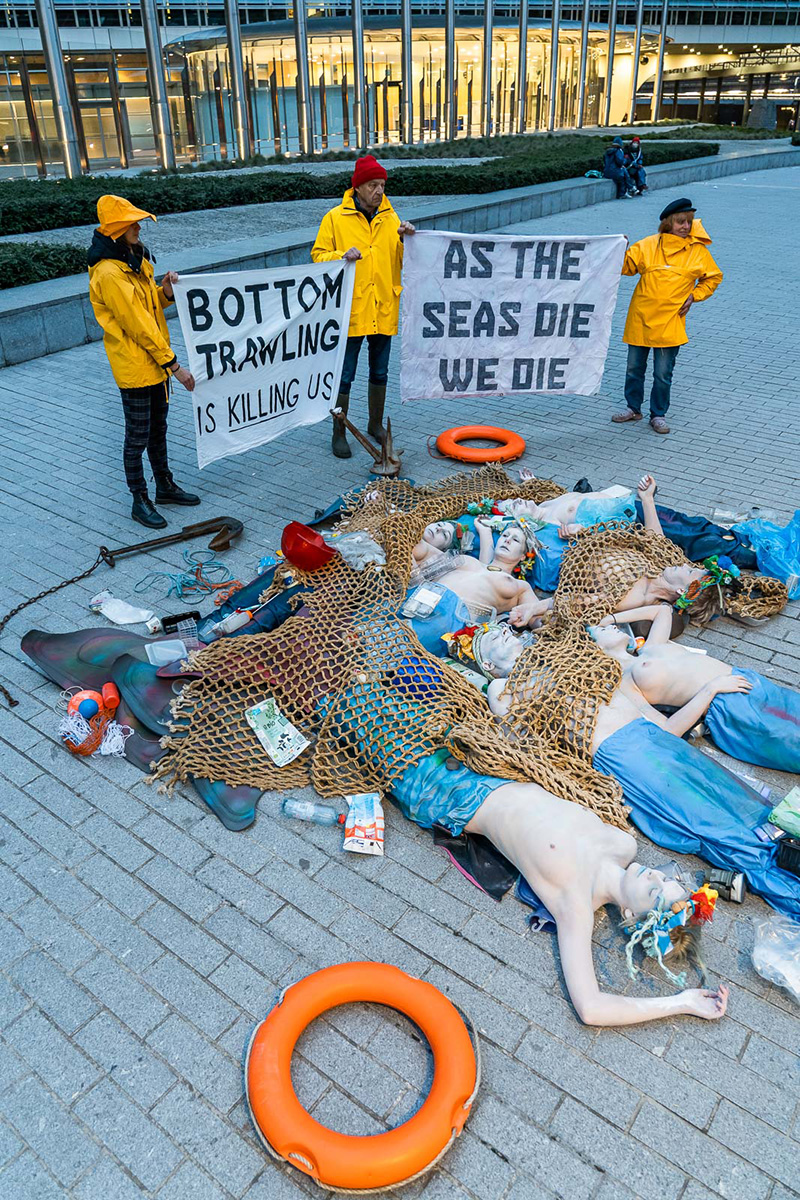
Today seven Ocean Rebellion “Merpeople” washed up, stranded, on the Boulevard Charlemagne in Brussels outside the European Commission. Caught in nets by bottom trawlers, the ‘Merpeople’ by-catch, complete with tails and crowns made of sea litter, lay dead and dying on the pavement with the flags of the EU fluttering behind.
As the merpeople lay dying a coalition of Ocean NGOs delivered a petition containing over 150,000 signatures to EU officials.
The Mer-people are a stark reminder to the EU Environment ministers and the EU Commissioner, meeting today, to take the destruction of the Ocean and overfishing seriously. The EU must make its ‘Action Plan for the Ocean’ an ambitious one, starting with a ban on bottom trawling in EU waters.
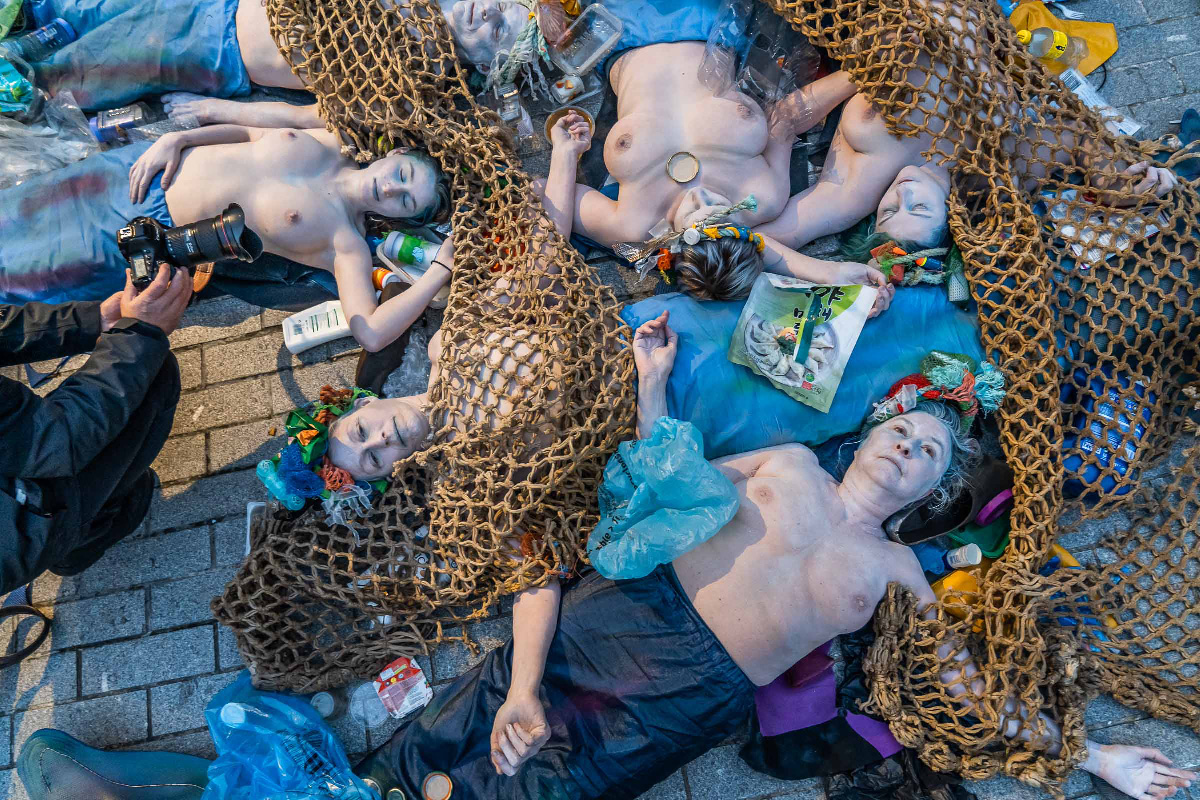
All life is connected to, and by, the Ocean.
The death of the Ocean is the death of magic, the magic of our imaginations.
The Mer-people represent the ‘death of magic’ by their entanglement in our cruel industrial fishing methods. They help reconnect us to our childhood wonder of the Ocean and warn us this wonder will soon be lost. They tell the truth about what will happen if we do nothing and continue with business-as-usual – there will be no more fish in the sea.
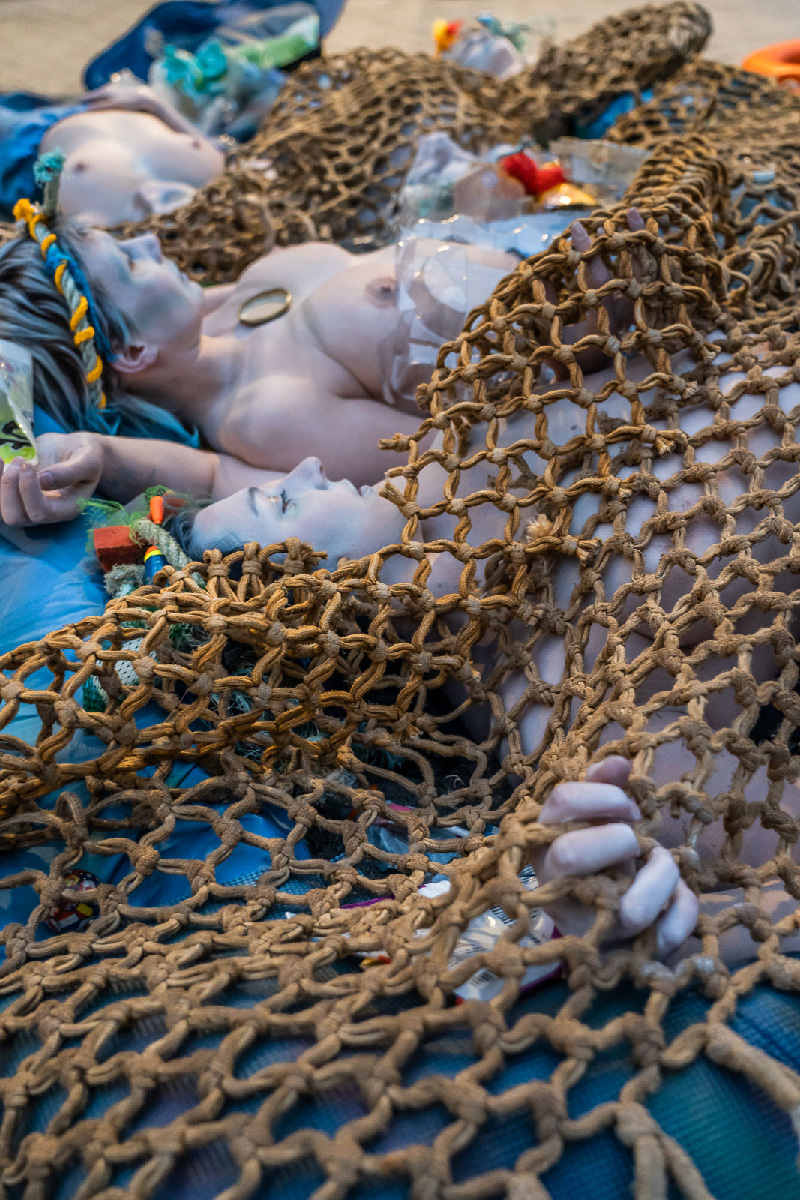
Industrial fishing vessels release 159 million tonnes of CO2 each year. This is equivalent to the annual amount of CO2 emitted by 40 coal-fired power plants. This figure has risen four-fold since 1950 estimates but it is not counted in national CO2 figures. Industrial fisheries benefit from government fuel subsidies worth an estimated US$7.7 billion a year. These fossil fuel subsidies to bottom trawling should be redirected to support a transition to low-emission and low-impact fishing.
Industrial fishing vessels release 159 million tonnes of CO2 per year
Bottom Trawling is estimated to emit as much CO2 as global aviation.
CO2 stored in the oceans is known as Blue Carbon. This is carbon stored in seabed sediments, marine habitats and the fish caught there. When the seabed is damaged by bottom trawling, this blue carbon is released, switching the seabed from a carbon sink to a source of CO2 and of methane (CH4), a much more potent greenhouse gas. Blue Carbon is also stored in marine animals, so fish taken out of the sea also add to Blue Carbon release. If this figure were included in carbon footprint calculations, it’s likely that the actual footprint of some bottom trawled seafood would be even higher than any other food, including beef. All this contributes to ocean acidification which is threatening to eradicate marine life especially those with skeletons or shells in the relatively near-term. Countless marine species are now threatened with extinction.
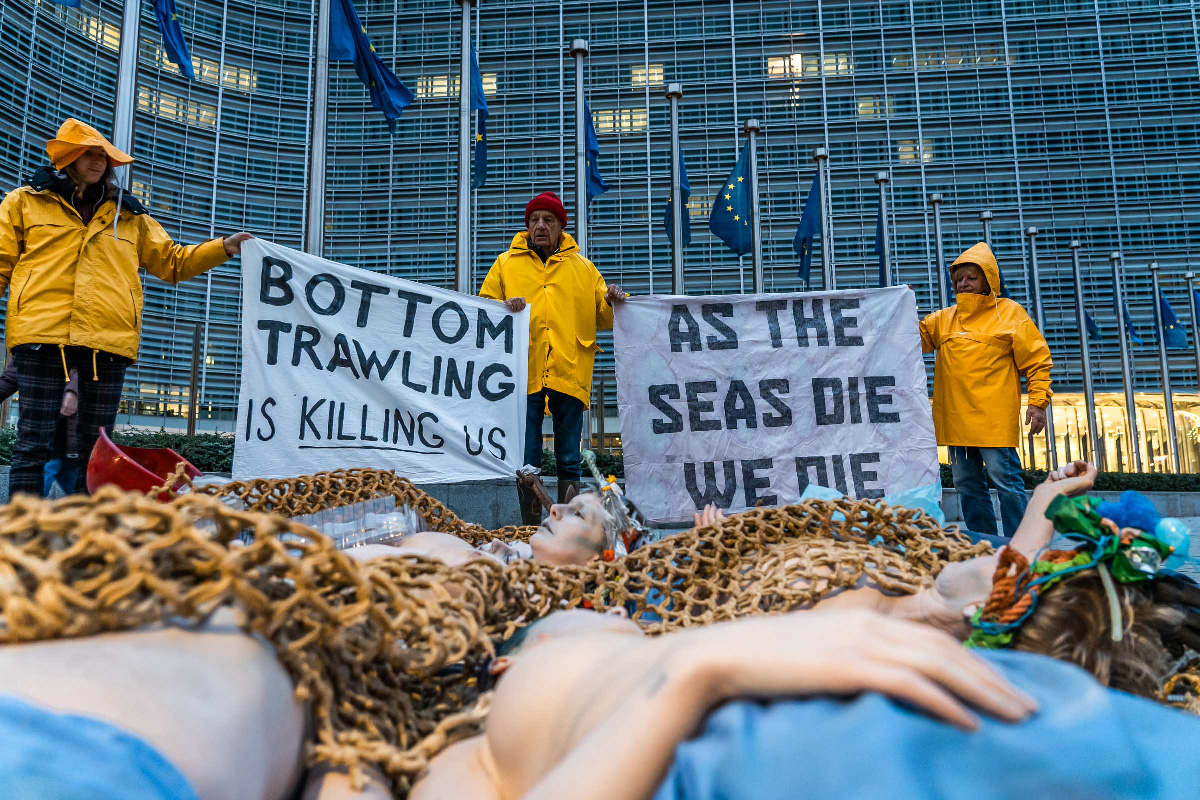
Ocean Rebellion demands an end to bottom trawling NOW. Together with any former subsidies to Industrial fishers being used to encourage low-impact fishing, by transitional grants to industrial fishing workers and subsidising the artisanal (or traditional small boat) fishing industry.
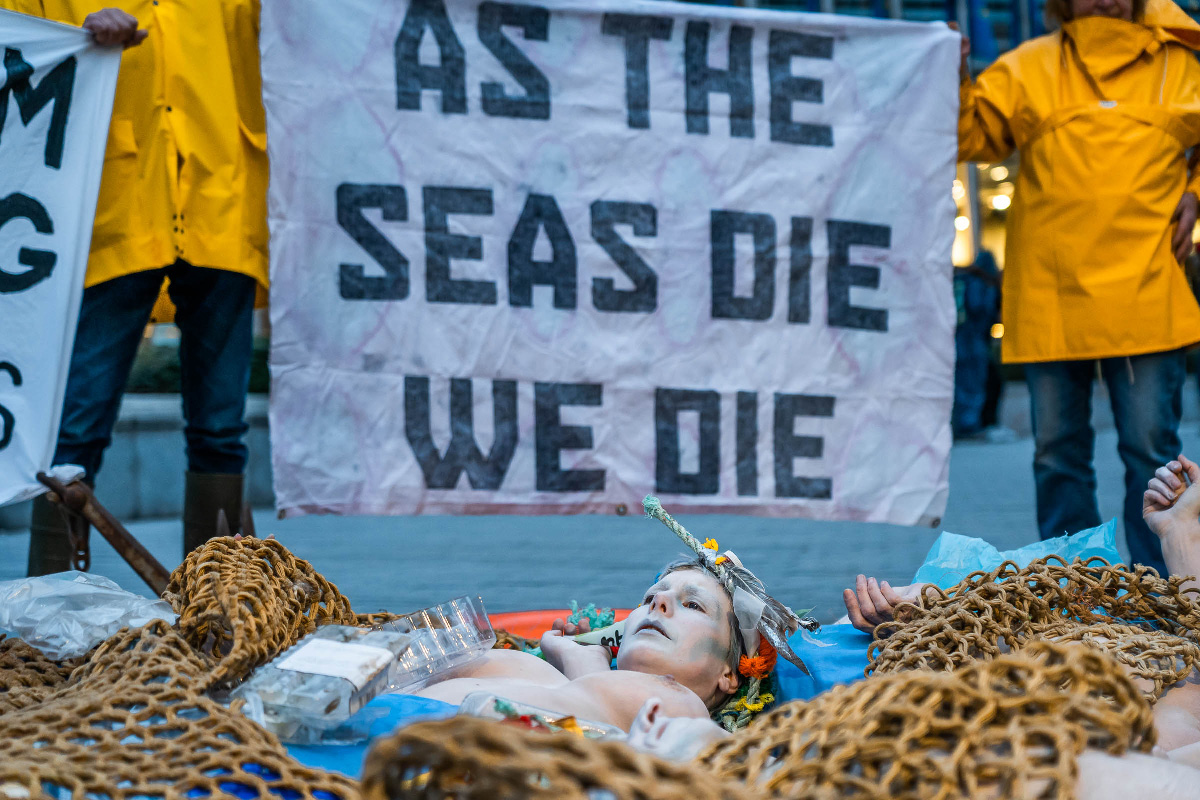
Sophie Miller from Ocean Rebellion says:
“Imagine how much damage a net bigger than a jumbo jet causes as it drags across the seabed. It catches everything in its path (whatever that might be), destroys marine life, and releases the ‘blue’ carbon stored there. Bottom trawling emits as much greenhouse gas as aviation. That’s a lot of gases.”
Clive Russell also from Ocean Rebellion adds:
“Often nets break, and when they do the net is cut free to float across the Ocean killing anything that gets tangled. And, when they break, the boat is ready with another to cast into the ocean to continue the death toll.”
Rob Higgs also from Ocean Rebellion says:
“Humanity has declared war on fish and we’re winning. The Ocean is so depleted that small fishing communities are on the edge of survival and areas of former plenty are now empty. Over 100 million people rely on inshore subsistence and small-scale artisanal fishing for their daily food and livelihood − often using the same waters targeted by bottom trawlers. It’s a no-brainer to ban bottom trawling both on climate breakdown and nature breakdown grounds. Climate breakdown and nature breakdown are effectively the same thing and both have to be stopped now.”
Suzanne Stallard also from Ocean Rebellion says:
“We demand all marine bodies Tell the Truth about destructive fishing and stop greenwashing a dirty industry with ‘sustainability’ lies. We must end bottom trawling worldwide, NOW, together with a just transition for displaced fisheries workers.”
Roc Sandford also from Ocean Rebellion says:
“The Ocean can recover quickly, but only if we halt this destructive practice now, within a few years these precious ecosystems will regenerate and fish populations will stabilise. We just need to give life a chance, if we don’t, there will be no more fish in the sea.”
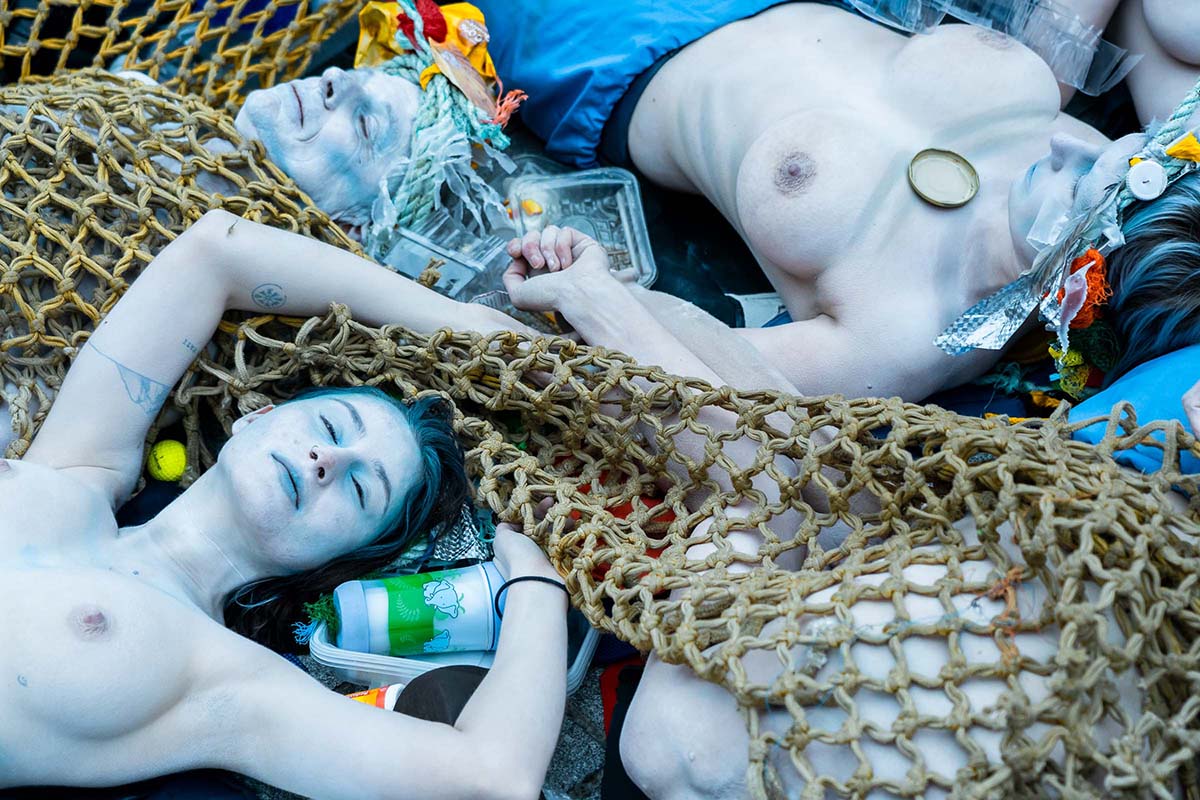
ACT NOW
Take part in our supermarket ‘unsustainable fishing’ certification scheme:
oceanrebellion.earth/news/supermarket-sticker-sweep
Sign this European petition to stop Bottom Trawling in Marine Protected Areas:
act.wemove.eu/campaigns/bottom-trawling
And this UK petition by the makers of Seaspiracy:
change.org/p/george-eustice-mp
Tell the EU to Act Now, send a direct message today:
@EU_ENV
JOIN OCEAN REBELLION
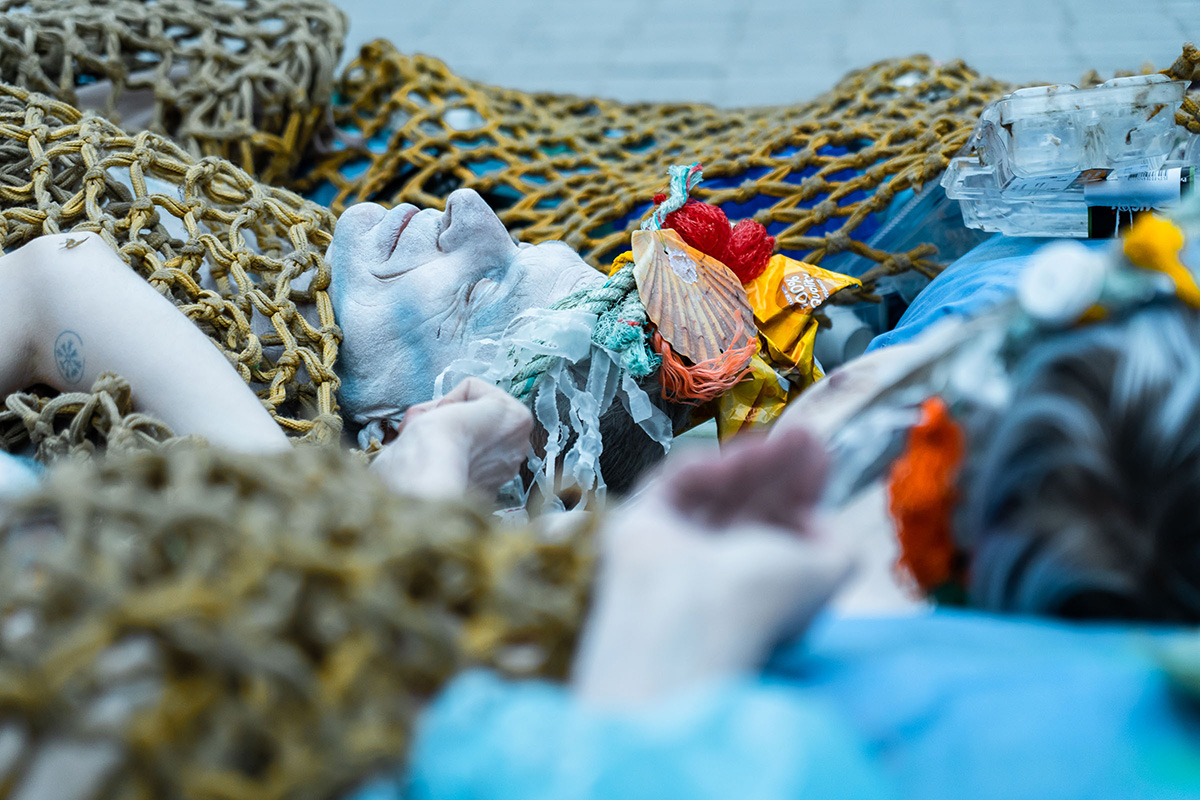
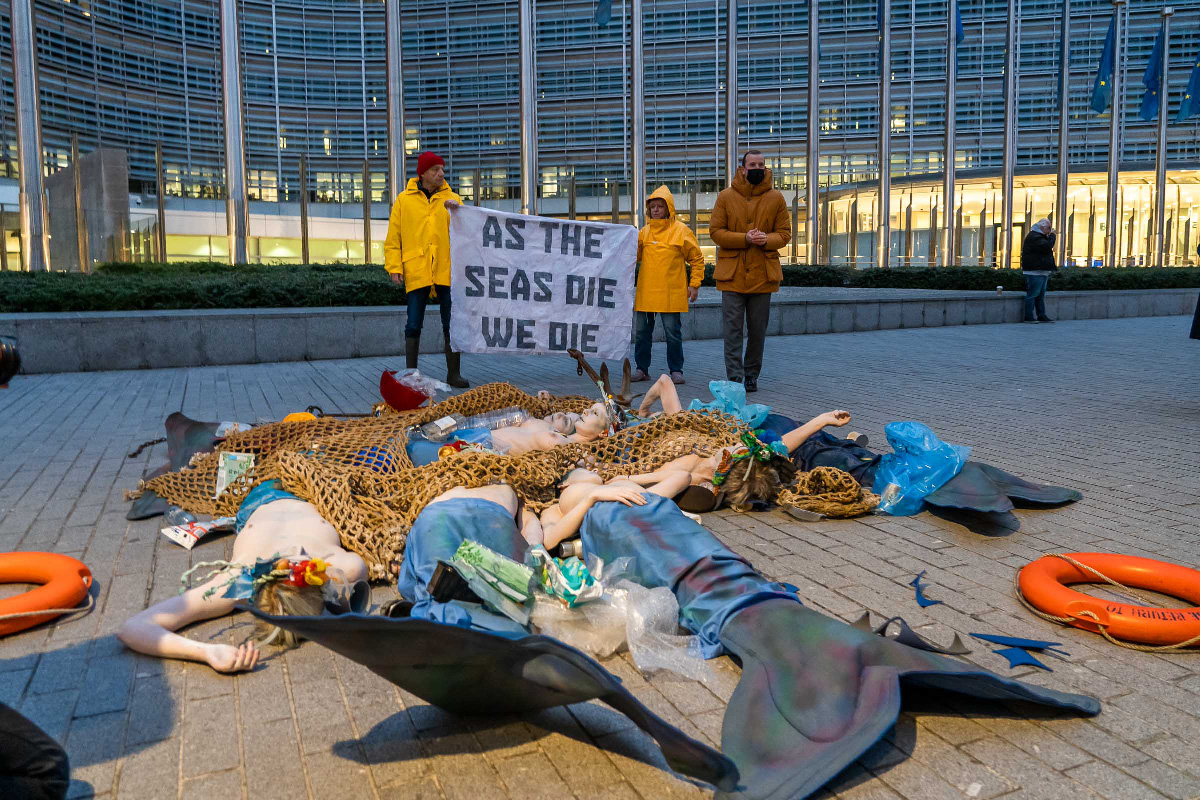
Photos: @ronjabossen